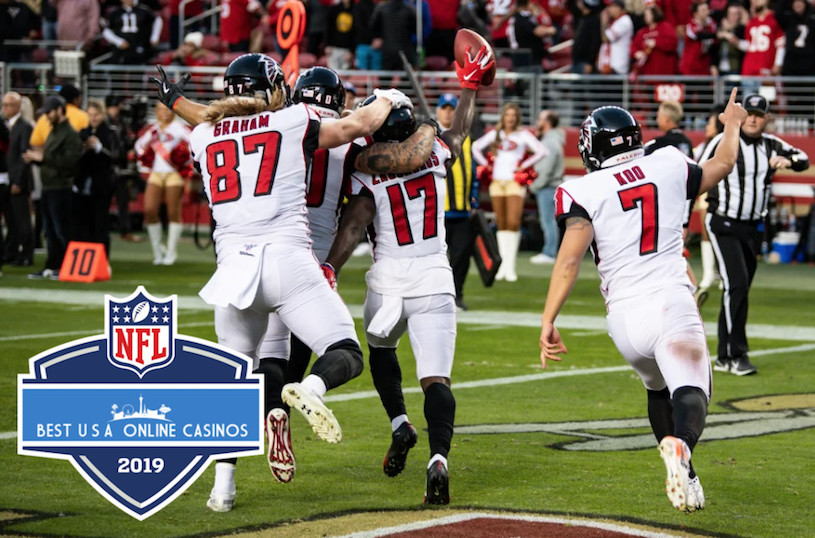Pinnacle Offshore Gambling
- Pinnacle Offshore Gambling Stock
- Pinnacle Offshore Gambling Company
- Pinnacle Offshore Gambling Services
Offshore Gambling from the U.S. Legal?
Short answer is No and the long answer likely arrives at No as well. The risk? It’s up for you to decide. Read on to get the full story. Offshore betting operators have long been in operation since the advent of the internet, going as far back as 25 years. These sites maintain a large share of the U.S. betting market, notwithstanding the gray legal area in which they operate. Nonetheless, a pressing legal issue that pervades wagering in this medium is the legality of online betting for US players. In other words, those that place wagers want to know if they can be sent to jail for doing so. The answer is most likely no, but the transfer of money from offshore sportsbooks to your bank account is illegal.
To answer the question in it’s simplest form, in the process of you depositing, betting, and withdrawing money from Bovada is breaking US law. The laws are also making it increasingly more difficult because operator liability is a more settled issue. We believe with the state by state legislation in the US, a large percentage of US sports bettors will bring their money back stateside. There isn’t the risk and players won’t be breaking the law. You can read all about the legality of online sports betting in the US.
What Are the Stateside Online Sportsbook Options?
The advent of offshore gambling has been a football bettor’s dream come true. Bettors can wager tens of thousands on a game in a matter of seconds or as little as a few dollars. Offshore NFL odds originate at Pinnacle Sports, but there are tons of other options for NFL offshore betting lines. Our NFL betting odds section has an excellent overview of odds and markets available. Pinnacle (Netherlands Antilles) – Welcome Any Sharps including Arbitrage Players. SBO Bet (Philippines / Isle Of Man) – Best Asian Handicap. MyBookie (Curacao) – Not for Professional & Too Many Restricted Countries. Top Offshore Betting Sites Welcome Offers – How To Extract Cash From Them. Advantage Gambling.
If you’re in Nevada, New Jersey or Pennsylvania, you’re golden. New Jersey folks are able to bet on a litany of online sportsbooks such as FanDuel Sportsbook, DraftKings Sportsbook, PointsBet Sportsbook & Sugarhouse Sportsbook.
Black Friday and the Impact on Online Gambling
Pinnacle Offshore Gambling Stock
Black Friday forever changed offshore gambling in the United States. There are two distinct periods in pre-Black Friday offshore gaming history. The first was prior to the enactment of UIGEA. The second period was between UIGEA and Black Friday. In any event, these two events forever altered a vibrant, yet unpredictable market.
The early online sportsbooks were popular, yet not entirely reliable. Initially, players signed up for them and funded their accounts through money orders.
Eventually, payment processors got in on the action, and players, at some times, could use their credit card to fund their accounts. Much of the payment processing for online sportsbooks was done through specialized companies that existed to funnel monies to the online wagering outlets. Still, prior to 2006, it was very easy for bettors to fund their accounts without having to undertake extraordinary measures.

Bovada, which previously operated as Bodog, has consistently been one of the largest operators since the advent of online wagering. This sportsbook is a large name in the market and it had offered both sports wagering as well as poker. Its strong market position is in spite of some legal and ownership turmoil that it had experienced. Another strong name in the sportsbook market before UIGEA and Black Friday was Pinnacle Sports, which offered both sports wagering and poker. Top entrants into the online poker market included PokerStars, Full Tilt Poker, and PartyGaming. Online poker was so entrenched that in 2003, four players in the World Series of Poker finals won their entries through online poker rooms.
Even before the federal government began to crack down on online gambling, casinos at times experienced serious financial issues. Players requesting payouts often had to hold their breath when doing so because sometimes the payout did not come. The unregulated online market experienced a raft of business failures for various reasons, including the fact that operating expenses were paid with player funds. When casinos went under, customers did not get paid and lost their money.
Federal Laws to Limit Offshore Gambling
The WIRE Act applies only to sports betting and not to online poker or other gambling. This was clarified by the Department of Justice in a 2011 opinion. This viewpoint was also taken by the Fifth Circuit in a 2002 decision that limited the application of the Wire Act. As a result, online gambling was partially uncovered by existing laws.
In 2006, Congress decided to curtail online gambling through the passage of UIGEA. The existing gambling laws such as the WIRE Act and the Travel Act were proving insufficient to tackle the issue of the proliferation of offshore entities. While states, and to some extent the federal government, could police gambling that occurred within their borders, enforcement was virtually impossible when gambling either traversed state lines or especially national borders. Although offshore operations could be charged in absentia, not much else could be done to disrupt the flow of monies.
UIGEA gave law enforcement a new tool in its arsenal to attack online gambling. The primary mechanism that UIGEA used to accomplish this was an attempt to “go after the money.” Since it was extremely easy to fund accounts through credit cards and wire transfers, Congress wanted to make it more difficult to fund accounts. This was following a 1999 recommendation from the National Gambling Impact Study Commission, which advised Congress to act to cut off transfers to online gambling operators.
It is important to note what was made illegal by UIGEA. The act of placing a wager offshore was not banned by the legislation. The law does not necessarily apply to individual players unless they are “engaged in the business” of gambling. Instead, the law applies solely to those who accept money in connection with wagers.
Specifically, UIGEA makes it illegal to accept credit, electronic funds transfers, checks or any proceeds from a financial transaction in connection with another’s participation in unlawful internet gambling. In other words, nobody may receive or process payments destined for offshore gambling platforms since they are not legal. The Federal Reserve Bank and the Department of Treasury were required to issue final regulations to implement UIGEA. Penalties for violating UIGEA were both jail time and monetary fines.
UIGEA had a chilling effect on offshore operators’ revenues as it became more difficult to fund accounts. For example, Pinnacle Sports’ handle fell by approximately half after the passage of UIGEA. Credit card companies grew increasingly cautious when it came to processing payments for companies tied to online gambling, in some instances completely shutting off the flow of money. There was a multitude of enforcement actions against payment processors. For example, in 2009, the U.S. Attorney in Maryland took legal action against two payment processors for Bodog, resulting in the combined seizure of over $20 million in assets.
Still, offshore operators resorted to extreme measures to slip their funding by financial institutions. In some instances, they set up fictitious companies to serve as fronts to accept revenues. This led to Black Friday, when a slew of online poker operators and payment processors were indicted and many millions of dollars of customer accounts were seized, leading to a near-complete shutdown of the online poker industry. Sportsbookscontinued to operate, albeit subject to continuous federal efforts aimed at enforcement of UIGEA.


Offshore Betting in the Wake of State Legalization
Recently, a slew of steps have been taken both on the federal and state level to spread legalized gambling to the physical United States. Numerous states have legalized both online gaming as well as online poker, with many more taking steps towards legalization. Additionally, the Supreme Court has struck down the federal statute that banned sports wagering, setting the stage for states to legalize sports betting since there is no longer any federal prohibition.
Now, bettors are not forced to place their wagers offshore in the event that they wish to gamble. Bettors now have various options for wagering that do not necessarily require the multitude of hoops that they have to jump through to fund offshore accounts. With a couple of exceptions, there are definite advantages to moving gambling activity back onshore provided that it is legal in a gambler’s jurisdiction.
The first major advantage of betting inside the U.S. is the protection that comes from regulation. While many people naturally decry government regulation, gambling is one industry where greater regulation makes business more safe and transparent. When gambling onshore, bettors are not subject to the unregulated business practices of offshore operators from which gamblers have zero recourse. Offshore bettors simply have to take what they are given by the operator and their only alternative is to switch their business to another operator. Moving accounts requires both a steep fee to close an account as well as open a new account.
The second major advantage of gambling in the United States is that debacles such as the frequent closures of online casinos can be avoided. Being subject to regulation imposes certain requirements on casinos. State regulations touch upon issues such as the safekeeping of customer funds. Additionally, nearly all states that have permitted online gambling to require operators to partner with a land-based casino that is already in the state. The use of established businesses with healthier bottom lines as teaming partners lends greater safety to online wagering in the United States. Conversely, some bettors may value the greater anonymity that is afforded by offshore casinos and may prefer to keep their business there.
As more states legalize both online casinos and sports gambling, it will be an open question whether that will impact the offshore betting market. The size of the offshore betting market is very large with estimated revenues between $2.5 billion to $3 billion. There are currently 12 to 15 million sports bettors in the U.S. The total U.S. market for online gaming is estimated to top $50 billion in 2018.
State Enforcement of Gambling Laws

In addition to the federal laws that govern illegal gambling, states also have their own regulatory regimes that address gambling within their borders. In the past, states had also attempted to take legal action with regard to online gambling. For example, Minnesota had attempted to force internet service providers to block access to offshore gambling websites for state residents before being forced to back down in the wake of a lawsuit. Other states took action against daily fantasy sports operators, often forcing the operators out of the state unless legalization occurred.
Now that online gambling is legal in some states, those states have a motive to curtail offshore betting that occurs in those states. With states receiving a cut of online gambling through taxes and licensing fees, gambling that occurs offshore cuts the state out of a valuable revenue source. Some states have taken measures against offshore betting. For example, Nevada law contains a “bad actor” clause that prevents those that have previously engaged in bad conduct from obtaining a license in the state. As a result, PokerStars is unable to obtain a Nevada license because of its prior illegal activities. New Jersey is also taking action to crack down on the operations of sites such as Bovada. New Jersey intends to deny or revoke licenses of those licensees who have connections with offshore gaming.
It is usually stated that have established gambling presences that are the most aggressive against offshore operators. New Jersey has been at the forefront of enforcement efforts against offshore betting. Now, in addition to enhanced enforcement efforts from the states, offshore operators will now be facing competition from licensed and regulated domestic casinos.
In any event, states have undertaken efforts to ensure that those playing its own games are located within its borders. All states that have legalized online betting have done so with the limitation that players must be physically located within the state at the time that they place a wager. One cannot bet on a Delaware contest when located in New Jersey and vice versa.
Free Betting News & Bonus OffersFind Out When You Can Legally Bet in Your StateUse our simple and secure Document Upload Tool to quickly complete the following verification requirements and enable your full Pinnacle account access.
If you have any questions please see our FAQs below.
1. Proof of Identity
Upload one of the following, making sure the proof of identity is not expired:
- Passport
- Driver’s license
- National ID
2. Proof of Address
Please upload one of the following, which should be no more than 3 months old and should match the information in your registered account:
Upload- Bank statement
- Utility bill
- House phone bill
- Government documentation
3. Customers depositing with a credit/debit card must verify their cards prior to requesting a withdrawal.
To verify a Credit/Debit card please upload the following:
- A digital photo of the front of your Credit/Debit Card (please cover the middle digits only showing the first 6 and last 4 digits and make sure the expiry date is legible). Please note if the middle digits are showing the upload will be rejected.
- A digital photo of the back of your Credit/Debit Card. Please cover the CVC code and kindly note that the card must be signed.
Frequently Asked Questions
Which documents can I use to verify my identity?

Passport, Driver's License or National ID card.
Which documents can I use to verify my address?
Bank statement, Utility bill, House phone bill or Government documentation.
Why do I need to supply these documents?
It’s important that we can identify our customers to comply with both regulatory requirements and to help ensure the security of customer accounts.
How long will it take?
We aim to process your documents within 72 hours of submission when possible.
What if I have a problem with uploading documents?
Our Customer Service team is on hand to walk you through the process should you have any difficulties.
Can I email the documents?
No. In order to process your documents as quickly as possible all customers must use the Document Upload Tool.
Where will my details be stored? What security is used?
We take security of your data very seriously. All documents are stored on a secure file server using industry standard encryption.
Why are my options to upload documents disabled?
It means your document/s are either under review (shown by an orange icon) or has been approved (shown by a green icon).
Pinnacle Offshore Gambling Company
If all of your documents have been approved you do not have to send in additional at this time.
Pinnacle Offshore Gambling Services
Note: In some circumstances, we may require further information in accordance with our licence conditions. We will contact you should this be necessary.